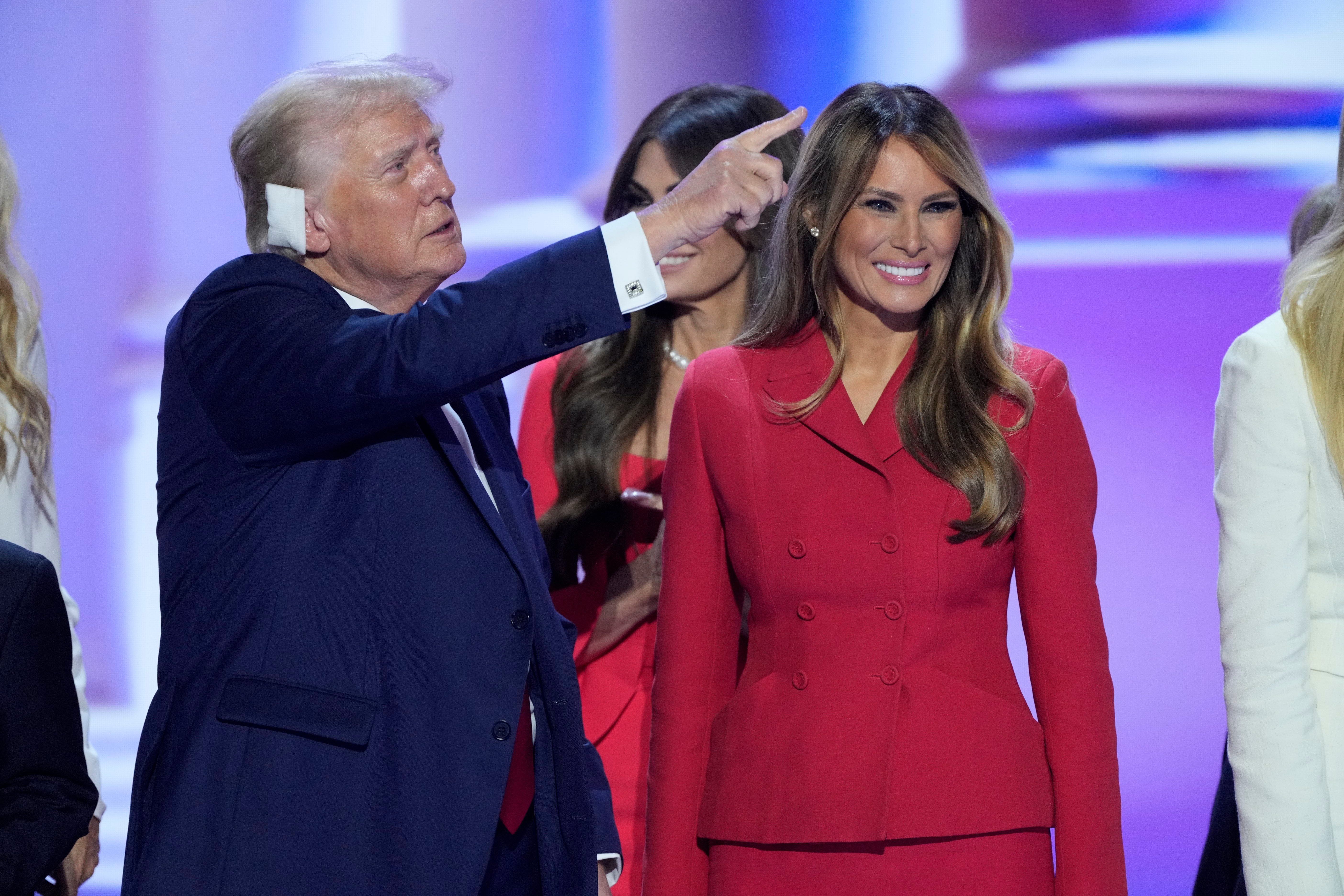After being relatively absent this campaign cycle, Melania Trump has decided the pen will be her sword in Donald Trump’s fight for the White House. The former first lady dropped her memoir, “Melania,” on Tuesday, just 27 days before the election, in which she breaks from her husband on immigration and abortion but refuses to concede that Joe Biden won the 2020 election.
Inside the book’s simple black cover is 182 pages that are equal parts CV and political manifesto. It takes the reader through the greatest hits of her career, from her idyllic childhood in Slovenia to her successful modeling career and QVC jewelry business, to her “focus on cybersecurity and the well-being of children” as first lady. It also avoids any mention of Stormy Daniels or the many other women who have accused her husband of sexual misconduct.
Instead, it paints a picture of a perfect relationship that began at the Kit Kat Club, where Trump asked for her number while there with another woman. But then “in private, he revealed himself to be a perfect gentleman.” Perhaps the part of her personal life that felt most sincere was her love and protection of her son, Barron Trump.
But from the beginning, this was undeniably a political piece of writing.
Immigration got the most print space. The book begins with a 26-year-old Melania in the immigration line at JFK airport, anxious to begin her modeling career. “My personal experience dealing with the trials of the immigration process opened my eyes to the difficulties faced by all who wish to become US citizens,” she writes. She claims that she was not briefed on Trump’s immigration policy, which she described as an example of “an occasional political disagreement” between her and her husband.
“While I support strong borders, what was going on at the border was simply unacceptable and went against everything I believe in,” she writes, claiming that because of her urging, Trump signed an executive order ending family separation and child detention at the southern border.
She also declared herself unequivocally pro-choice, without acknowledging her husband’s role in overturning the right to abortion. “It is imperative to guarantee that women have autonomy in deciding their preference of having children, based on their own convictions, free from any intervention or pressure from the government,” the Republican nominee’s wife writes. “Restricting a woman’s right to choose whether to terminate an unwanted pregnancy is the same as denying her control over her own body. I have carried this belief with me throughout my entire adult life.”
Her declaration comes a week after the vice presidential debate, during which Trump’s running mate JD Vance also seemed to break with his party’s, Trump’s, and even his own previous stance on abortion by criticizing the uneven availability of abortion services.
During the debate, Vance presented himself as a potential voice of reason in the Trump campaign, effectively laundering his running mate’s most extreme views to make them more appealing to moderates. Melania may have been seeking to do the same for women – Trump is behind by 13 points with female voters – by breaking with her husband on immigration and abortion.
Even if this is just campaign rhetoric, critically, neither Melania nor Vance were willing to refute Trump’s belief that the 2020 election was fraudulently won by Biden. Melania’s book echoes Trump’s doubts that the time it took to decide the election was evidence that it was fraudulent. This could foreshadow that the Trump campaign may double down on election-undermining rhetoric if the election is close or takes days to decide, which many forecasts predict it will. “You can’t continue to count votes for days,” she writes. “Many Americans still have doubts about the election to this day. I am not the only person who questions the results.”
